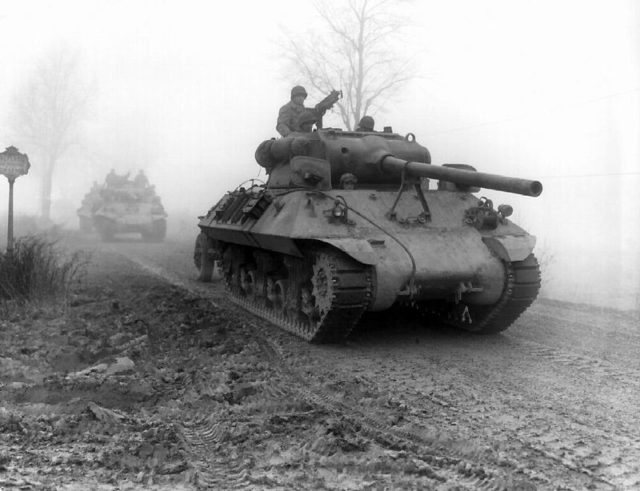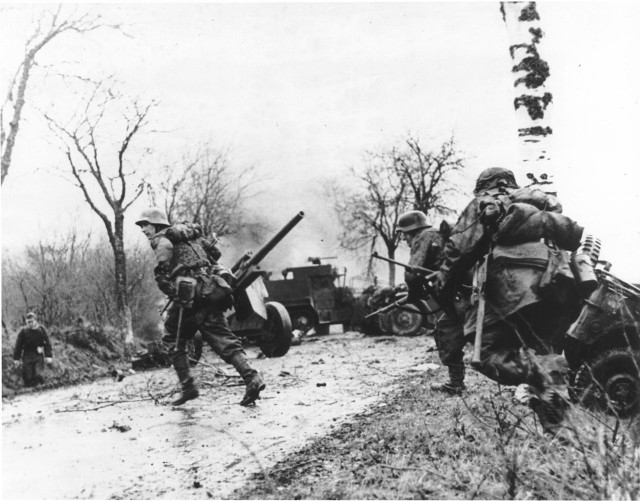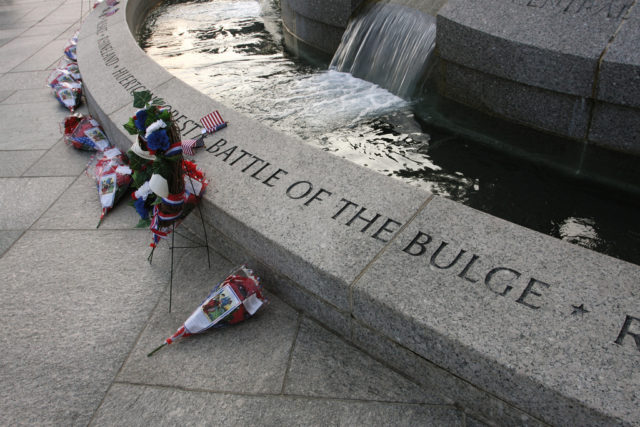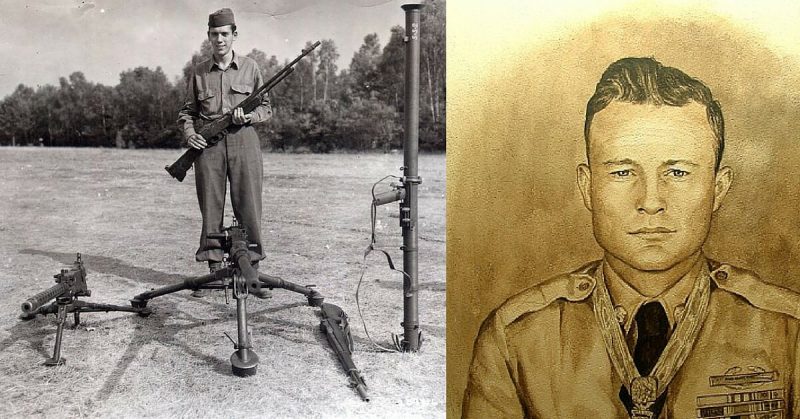To be clear, the number would have only been 20 had the German SS taken Bolden up on his act of mercy. For after gunning down 20 of the 35 holed up in a Belgian house, he retreated and gave the final 15 the opportunity to surrender. He nursed his wounds as he waited and yet when it appeared the final 15 still had a little fight left in them he charged the house alone and finished the job.
During the Battle of the Bulge, the German Army made one final attempt overwhelm the Allies with their coordinated push catching many American units outnumbered, but not overwhelmed. Men like Paul Bolden stood in the gap and with heroic feats turned 35 to 1 odds into a stunning victory. For Bolden, he would pick up the nation’s highest military honor for his feat and leave history with this spectacular display of gallantry against all odds.
From Alabama to Belgium
Paul Luther Bolden was born in June of 1922 in the small Alabama town of Hobbs Island. Growing up, not many would have picked the slender rural Alabama man as a local hero or national treasure. But then again, such humble beginnings were often the case for the generation of warriors who would display unspeakable gallantry in the years to come.
In October of 1942, Bolden would join the Army as an infantryman and in short order would find himself on a boat to Europe. By December of 1944, Bolden was a Staff Sergeant with the 30th Infantry Division as they pushed through Europe with sights set on the German homeland. Unfortunately for Bolden and the rest of the Allied troops in late 1944 Europe, the Germans would have one last massive assault up their sleeves that December.
The Battle of the Bulge kicked off on December 16th in the midst of a brutal winter as the Germans famously pushed into the Allied lines causing confusing and chaos. And yet, as the Allies regained their footing they began to push back after halting the German advance, and it was time to reclaim lost territory and continue the advance towards the homeland. For Bolden, Belgium would be the scene of his inexplicable gallantry, and he forced 35 German SS troops to make their final stand of the war.

Storming the SS
On December 23rd, 1944 Bolden would find himself and the rest of Company I of the 120th Infantry, 30th Infantry Division in the thick of this massive German winter assault near Petit-Coo Belgium. As his Company advanced, they were suddenly pinned down by massive amounts of machine-gun and small-arms fire coming from a house approximately 200 yards to the front of their position.
Their dire position was then exacerbated when German mortar and tank artillery shells began to rain down up his Company. It was at this moment that Bolden and a fellow soldier determined the only way out was forward and directly toward the enemy strong point.

On their own initiative, the pair crawled forward under the heavy fire towards what they knew for certain was a vastly numerically superior force. Taking up assault positions near the house, the plan was for his fellow soldiers to lay down covering fire from across the street while Bolden charged the house alone to deploy grenades.
As Bolden rushed the house, he perched down just under a window and in an instant gifted both a fragmentation grenade and a white phosphorus grenade to the Germans entrenched in the house. They exploded with a thunderous roar when Bolden had the presence of mind to realize the shock must have the Germans terribly disorganized.
At this moment, he left his covered position and kicked in the door only to find 35 German SS troopers staring at him in the face. Just as they tried to reorganize themselves, Bolden opened up with his submachinegun and poured round after round into the crowd.
During this initial hailstorm of bullets, Bolden killed 20 of the German SS before an enemy burst of fire tore into his shoulder, chest, and stomach. Meanwhile, his comrade across the street had been killed by enemy return fire, and Bolden retreated from the house. Nursing his wounds, he was now giving the remaining Germans the opportunity to surrender and bring the war to a close for them.

One More Charge
After a moment, it became clear the Germans were to refuse Bolden’s act of mercy and had decided to stick it out and fight some more. Having already inflicted enough damage on the enemy and to say nothing of being seriously wounded, Bolden could have easily retreated and left this house fellow troops to clean up. However, Bolden was a man of action who insisted on finishing the job.
Despite his serious wounds, he mustered the strength to make one more pass at the house. Bursting through the door with his submachine gun giving the awaiting Germans a terrifying case of Dejavu, he killed the remaining 15 SS troopers, firing until his ammunition ran out.
For his actions on December 23rd, Paul Bolden was awarded the Medal of Honor for inexplicable gallantry and resolve. His actions are credited with clearing the path for the rest of his unit and saving countless American lives.
Before leaving the Army, Bolden would reach the rank of Master Sergeant before returning to small town Alabama to live out the rest of his days. He received his Medal of Honor in August of 1945 along with 28 other recipients after the war.
Paul Bolden would pass away at the young age of 56 in 1979 and was buried in Owens Cross Roads, Alabama. His Medal of Honor serves as a bookmark in history for what was one of the countless examples of heroism and the type of disregard for one’s own life that it took to overcome the enemy during that war.
Bolden would always lament the passing of his friend during that assault and made it clear that he wears the Medal not only for himself but for those who never made it out of the Bulge.
